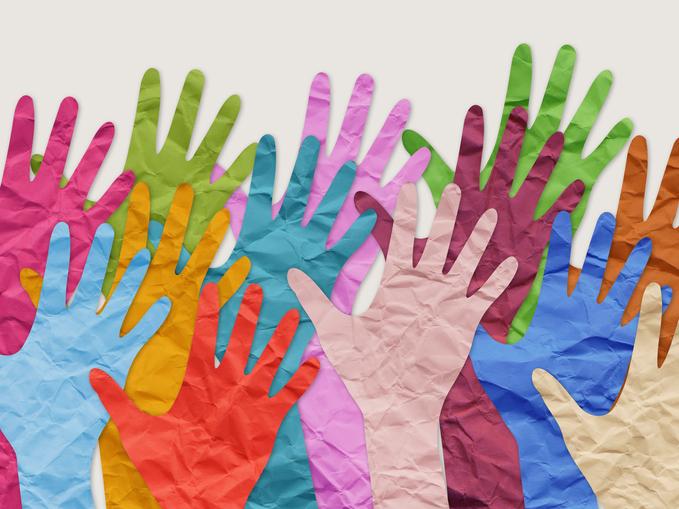When we talk about transferable skills, we often think of the usual suspects: communication, teamwork, time management. But there’s one more I believe belongs on that list, particularly now, when so many careers unfold across borders and cultures.
That skill is global competence.
Today, I spend much of my time supporting faculty in designing global learning experiences, both abroad and here at home. Why is this important? Employers value international experience and the cross-cultural communication skills that ensue, because global learning means students are not just exposed to differences – social, environmental, cultural, political, economic – but actively experience them. And what I’ve seen is this: when done well, global learning gives students the chance to develop the communication, collaboration and adaptability skills we know employers value, all while deepening their disciplinary knowledge.
- Spotlight guide: Teaching and researching across international borders
- How a ‘Global Week’ could advance internationalisation at your institution
- Making global academic connections from your desk
So, how can we, as educators, integrate global learning into already-packed curricula? It starts with alignment, intention and a shift in how we define “international” learning.
How to connect ‘global learning’ to discipline-specific content
We don’t need to tack on a global component just for the sake of it. Instead, we can identify natural intersections between global learning and course outcomes.
If I’m teaching a course in public relations, for example, I might have students work on communication pieces that include visual elements. To globalise it, they could, for example, collaborate with students in a graphic design course at a partner university abroad to create the materials. Suddenly, the assignment becomes cross-cultural, collaborative and interdisciplinary. If this type of collaboration is not possible, other ideas to globalise learning include incorporating global themes and case studies into the course design, and having students participate in community-engaged projects that address real-world global issues.
The key is always alignment: the global element should support the core learning goals of the course, not sit on top of them.
Acknowledge the developmental curve
Not all students will arrive ready to succeed in a cross-cultural team. That’s OK. Just like public speaking or teamwork, global collaboration is a skill that develops over time.
It also helps to think developmentally. A first-year student might benefit from simpler virtual exchanges or reflection-based assignments. A senior might be ready for a full collaborative global project. Matching the global experience to the student’s stage of learning is key.
For those new to global education, assessing students’ global learning might seem like a daunting task. Luckily, we can look to resources, such as the American Association of Colleges and Universities’ Value rubrics, that provide common frameworks and assessment criteria for global learning.
Remember the ‘why’ behind global learning
A reason students might disengage from global learning is that they don’t understand the purpose. Helping students see global collaboration as preparation for the world they’re about to enter can be a powerful motivator. So, educators need to make the why crystal clear. Why are they working with a team in another country? What can they learn from differences in perspective, language or approach? What challenges might they face – and how can those be valuable learning moments?
Global learning experiences can broaden our perspectives and cultural awareness, further our understanding of complex systems and challenges, and develop our problem-solving and communication skills.
Embrace virtual global collaboration
Students can benefit from global learning even if they don’t have the opportunity to study abroad. We can bring it into our classrooms virtually.
That’s why, in collaboration with our Global Education Office, we’ve been helping faculty incorporate global learning into students’ learning experiences. For some faculty, this might mean including international examples and case studies in course content, connecting with colleagues abroad for guest-speaking opportunities, or designing a local service-learning project with international ties.
For others, this might involve building virtual global collaboration or collaborative online international learning (COIL) experiences into their courses by coordinating with a faculty colleague overseas so two classes can work together, synchronously or asynchronously, on a shared project. These experiences teach practical, real-world skills: navigating time zones, managing online communication across cultures, adapting to different expectations and norms. In other words, it’s global learning in the context where most global work happens these days – online.
Looking ahead: a transferable skill for the future
Global collaboration is quickly moving from a “nice to have” to a must-have. Whether our students go into engineering, business, healthcare or the arts, chances are they’ll work across borders and cultures at some point.
That makes global learning one of the most future-facing transferable skills we can offer. And with thoughtful design, interdisciplinary collaboration and the right support, we can make it a part of many students’ education, not just those who travel abroad.
We can meet our course objectives and prepare our students for the complex, connected world they’re about to inherit. That’s the kind of alignment where real learning – and real growth – happens.
Tiffany Shoop is director of special programmes in the Center for Excellence in Teaching and Learning at Virginia Tech.
If you would like advice and insight from academics and university staff delivered direct to your inbox each week, sign up for the Campus newsletter.




comment